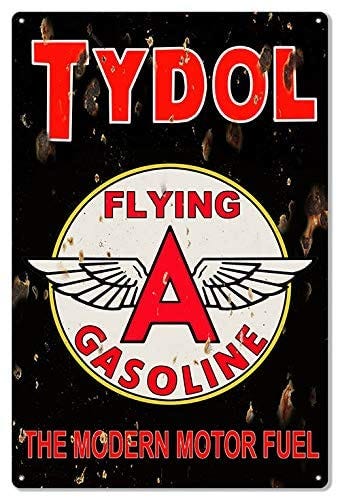Anxiety for the Future; Pursuit of the Past
I HAVE SOMETIMES had the feeling, since that time, that the future held nothing that I wanted to face, that I was moving downriver toward some equivalent of having to stuff a hungry clam down the front of my bathing suit, and that I would be better off, on the whole, jumping overboard and letting myself slip beneath the surface, but the thought of the bottom—the slime, the rusty cans—has kept me on board.
“Do Clams Bite?”
I loved the islands, and . . . I loved crabbing with Grandfather along the network of narrow waterways that ran among them. Grandfather slowly, silently rowed Rambunctious’s dinghy while I watched for a scurrying crab along the overhanging edges of the islands, a flash of white in the shadowy water, so quick that I reacted not to the crab itself but to the memory of it, and darted my net at where it had been, much as I’m rowing the waterways of memory now, snatching at flashes in the shadows. I liked the pace of crabbing too: the lazy pace, barely more than drifting, and the whispered conversation, which wandered as we did, in and out and around the islands. If, just then, I had been asked to choose a perfect life for myself, that is what I would have chosen, and Grandfather and I would be there now, whispering, barely moving.
“Do Clams Bite?”
“There is no situation in life which we cannot sweeten, or embitter, at will. If the past is gloomy, I do not see the necessity of dwelling upon it. If the mind can make one vigorous exertion, it can another: the same energy you put forth in acquiring knowledge, would also enable you to baffle misfortune. Determine not to think upon what is painful; resolutely turn away from everything that recalls it; bend all your attention to some new and engrossing object; do this, and you defeat the past. You smile, as if this were impossible; but it is not an iota more so than to tear one’s self from a favorite pursuit and addict one’s self to an object unwelcome to one at first. This the mind does continually through life: so it can also do the other, if you will but make an equal exertion. Nor does it seem to me natural to the human heart to look much to the past; all its plans, its projects, its aspirations, are for the future; it is for the future, and in the future, that we live. Our very passions, when most agitated, are most anticipative. Revenge, avarice, ambition, love, the desire of good and evil, are all fixed and pointed to some distant goal; to look backwards is like walking backwards—against our proper formation: the mind does not readily adopt the habit, and when once adopted, it will readily return to its natural bias. Oblivion is, therefore, a more easily obtained boon than we imagine. Forgetfulness of the past is purchased by increasing our anxiety for the future.”
Henry Pelham in Sir Edward Bulwer Lytton’s Pelham, or Adventures of a Gentleman
Fact and Fiction
I WENT UP TO THE BOW and sat there watching the docked boats, the waterside houses, the Flying A station, and the Municipal Dock slip past. It was always a pleasure, however mixed with fear, to see the bay suddenly open before us when we passed the dock, where boys my age sat fishing safely. It was a clear day, and I could see across to the flats.
“Do Clams Bite?”
Flying A is not a fictional gasoline. It was one of the brands sold by the Tidewater Oil Company. According to Wikipedia:
Tide Water was founded in New York City in 1887. The company entered the gasoline market and by 1920 was selling gasoline, oil and other products on the East Coast of the United States under its “Tydol” brand.
In 1926, control of Tide Water Oil sold out to a new holding company, Tide Water Associated Oil Company, which also acquired a controlling interest in California’s Associated Oil Company. Soon thereafter, Standard Oil Company of New Jersey took control of the company.
With the merger and creation of “Tidewater Associated Oil Company,” Flying A became the primary brand name for the company, though the Tydol and Associated names were also retained in their respective marketing areas. . . .
During the 1950s, the Associated and Tydol brands gradually fell into disuse, and were dropped entirely in 1956.
BP acquired the Veedol brand when it bought Burmah-Castrol in 2000. In February 2011, BP announced that it would to sell the Veedol brand, which was subsequently acquired by Tide Water India, part of the Andrew Yule group Indian company.
In 1966, Phillips Petroleum Company (now ConocoPhillips) purchased Tidewater's western refining, distribution and retailing network. Phillips immediately rebranded all Flying A stations in the region to Phillips 66.

Why have I tried your patience with all of that? Because this Flying A marine gas station on the estuarial stretch of the Bolotomy River is one of the few examples of real details included in the Personal History without alteration or transformation. It’s a direct link to the reality beneath the fiction.
But is it art?
No art without transformation.
From the ruins and the dissolution of real reality something very different will emerge, not a copy but an answer: fictional reality.
Mario Vargas Llosa, The Perpetual Orgy: Flaubert and Madame Bovary
[more to come on Wednesday, June 23, 2021]
Have you missed an episode or two or several?
You can catch up by visiting the archive.
You can also download a free ePub of “My Mother Takes a Tumble,” the first novella in Little Follies. It should be readable in any e-reader app, but I’ve found that it looks best in Apple’s Books app viewed on an iPad.


